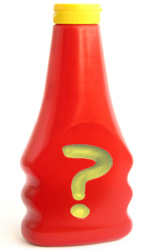
To hear them tell it, Dropbox "censored" Dropship using a "bogus" DMCA "takedown" notice.
In fact Dropbox was simply protecting its "secret source."

Companies do this because they're not foundations. That is, one profit-seeking outfit is doing all the work, and they don't expect anyone else to help them protect the family jewels. It's one of the differences between open source as Eric Raymond proclaimed it in "The Cathedral and the Bazaar" and Free and Open Source Software as called for by Richard Stallman.
Dropbox is a free service for sharing files. It has chosen to stay completely "legit," and avoid upsetting the copyright industries, through close control of its secret source. You can argue about the ethics of this all you want, but that's what it has done in its licenses.
In this case Dropbox decided to protect its protocol. It made that proprietary.

It doesn't matter that van der Laan "figured out Dropbox' protocol." He added what was proprietary to an open source project, without the permission of the owner, and so violated that proprietary license.
Now, if you want to go into a clean room environment and create your own protocol that emulates what Dropbox does and make that open source, then you're welcome to do so. Maybe van der Laan will. Maybe someone else will.
But under the law Dropbox is well within its rights to protect its secret sauce. This is a key difference between FOSS and open source. Open source lets you protect secret source, it lets you keep some source secret. Under a FOSS license, like the General Public License (GPL), there's an obligation to share improvements, what I call Stallman's "fourth freedom," something that belongs to the creator of the software but which others see as an obligation.
Argue about that all day if you want. This isn't about GPL code. It's not even about open source code. It's about abusing a proprietary protocol. It is, in open source terms, "black letter" law.










